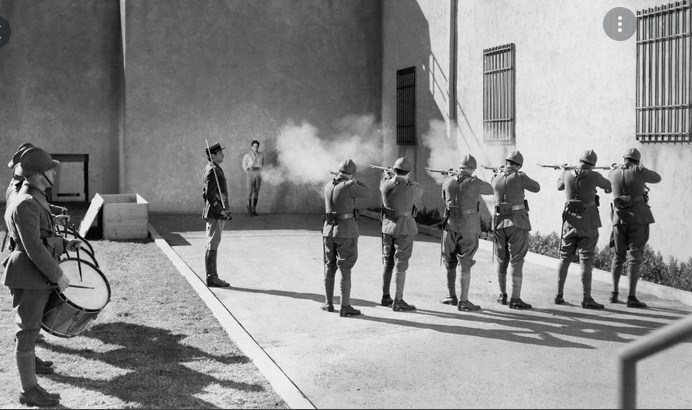
South Carolina death row inmate, 57-year-old Richard Bernard Moore, has taken the state to court on the legality of executing inmates by firing squad and the electric chair. Moore is scheduled for execution on April 29 and has until Friday to choose between death by firing squad or the electric chair, but he is asking the state to stay the execution until the Supreme Court would make its ruling.
South Carolina adopted executing death row inmates by firing squad or electric chair last year when it became nearly impossible to obtain lethal injections for executions. For 11 years, the state has not executed any inmates because of its inability to secure lethal injections, which is the state’s major execution method. The government then introduced the firing squad and electric chair as viable options.
But Moore’s lawyer, Lindsey Vann, said a firing squad violates the state’s constitutional ban on cruel and unusual punishment, and that it is an outdated and barbaric way of executing condemned prisoners.
“The electric chair and the firing squad are antiquated, barbaric methods of execution that virtually all American jurisdictions have left behind,” Lindsey Vann contended.
The government spent $53,600 to renovate its death chamber in early March. The inmate will be strapped to a metal chair with a hood covering his head. He will face a wall where three loaded guns are stationed 15 feet away. Three volunteers from the Department of Corrections will be the executioners, and they will fire at a spot on the inmate’s chest. Witnesses will be able to watch from behind thick glass.
Moore has spent more than 20 years on death row since he killed James Mahoney, a convenience store clerk, in Spartanburg, in 2001. Moore had gone into the store to rob, but he wrested a gun from Mahoney after the clerk pulled the weapon on him. Mahoney pulled out a second gun and with both men armed, they fired at each other. Mahoney shot Moore in the arm and Moore shot Mahoney in the chest, killing him. The robber still went ahead to rob the store, stepping over the clerk’s body.
While a number of critics have argued that Moore’s crime is not commensurate to a crime that attracts execution, his lawyers contend that South Carolina has not proven its inability to obtain lethal injections for required executions. A Supreme Court justice, Kaye Hearn, said the inmate is being executed for being black. “Moore’s case highlights many of the pitfalls endemic to the death penalty, beginning with the role race plays,” she wrote.











